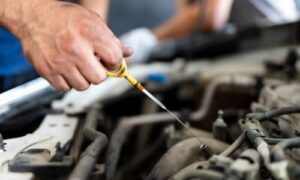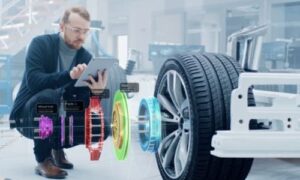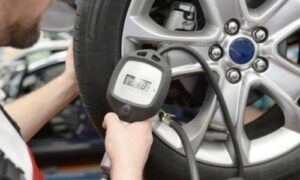Every car owner must understand the role of filters in car maintenance. Consider oil and fuel filters and various other filter types found in engines. These filters should be replaced well before they end their lifespan. Car owners must routinely inspect their filters for signs of dirt or clogs, ensuring they are replaced when necessary to prevent potentially severe damage to their vehicles.
Moreover, the importance of a car’s air filter cannot be overstated in the context of the role of filters in car maintenance. This component filters the air your car breathes, allowing it to perform its tasks efficiently. Without a properly functioning air filter, dirt and contaminants could infiltrate the engine, potentially leading to costly repairs in the future. Thus, it is crucial not to underestimate the significance of regular inspection and timely replacement of air filters in your car.
Introduction
Car maintenance is an essential aspect of owning a vehicle, and one often overlooked but crucial component of this is filters. In this comprehensive guide, we will delve into the role of filters in car maintenance, explicitly focusing on air, cabin, and fuel filters. These filters play a significant role in ensuring your vehicle runs smoothly and efficiently. Regular inspection and timely replacement of air filters in your car are crucial for several reasons. Firstly, air filters filter dust, dirt, and other particles from the air that enters your engine. Over time, these particles can build up and clog the filter, restricting airflow and reducing engine performance. Secondly, a dirty or clogged air filter can also lead to decreased fuel efficiency and increased emissions. Therefore, you can ensure optimal engine performance by regularly inspecting and replacing your air filters.
Furthermore, the American Automobile Association (AAA) reports that failing to replace a clogged fuel filter can cause fuel pump failure. This statistic sheds light on the potential financial implications of overlooking the maintenance of vital filters, emphasizing the importance of proactive car care.
Air Filters: The Breath of Your Engine
Regarding the role of filters in car maintenance, air filters are like the lungs of your car’s engine. They ensure that the air entering the engine is clean and free from contaminants, which is vital for optimal combustion. A clean air filter can enhance fuel efficiency, prolong engine life, and reduce emissions. Regularly inspecting and replacing your air filters is a simple yet effective way to maintain the health of your engine. Neglecting this vital maintenance task can lead to decreased fuel efficiency, potential damage to engine components, and increased harmful emissions. By taking care of your air filters, you ensure optimal engine performance and contribute to a cleaner and greener environment.
Cabin Filters: Breathing Fresh Air
Cabin filters may not affect the performance of your car, but they play a crucial role in your comfort. These filters ensure the air inside your car’s cabin is clean and free from dust, pollen, and odors. Regular replacement of cabin filters is essential for a pleasant driving experience. Not only do cabin filters improve the air quality inside your car, but they also help prevent allergies and respiratory issues caused by pollutants. Neglecting to replace these filters can result in a buildup of harmful particles, compromising your health and overall comfort while driving.
Fuel Filters: Keeping Your Engine Clean
Fuel filters are the unsung heroes of car maintenance. They prevent contaminants from entering the engine through the fuel, protecting critical components. Regular replacement of fuel filters is necessary to avoid engine damage and maintain optimal fuel efficiency. Fuel filters play a crucial role in ensuring the longevity and performance of your engine. Over time, dirt and debris can accumulate in the fuel system, leading to clogged injectors and reduced power. Regularly replacing fuel filters can avoid costly repairs and keep your engine running smoothly.
As of 2022, statistics regarding car maintenance and filters in the USA underline the significance of regular upkeep. According to the Environmental Protection Agency (EPA), dirty air filters can reduce fuel economy by up to 10%. This statistic highlights the impact of neglecting air filter maintenance on the environment and one’s wallet.
The Importance of Regular Maintenance
To maintain your car’s performance, replacing these filters at regular intervals is crucial. Neglecting filter replacement can lead to decreased fuel efficiency, reduced engine lifespan, and increased emissions. Routine maintenance, including fuel filter replacement, is essential for optimal engine performance. Neglecting this vital task can result in decreased fuel efficiency, a shorter engine lifespan, and increased harmful emissions that can harm both the environment and your wallet. By staying on top of filter replacements, you can ensure that your engine continues to run smoothly and efficiently for years to come.
Expert Insights for the Role of Filters in Car Maintenance
As an expert in car maintenance, I can’t stress enough how essential these filters are for the overall health of your vehicle. I’ve seen countless cases where neglecting filter replacement led to costly engine repairs. It’s a simple task that can make a world of difference. Regular filter replacements not only improve your vehicle’s performance but also contribute to reducing pollution and keeping your filters clean and functional means you are actively taking steps towards a greener and more sustainable future. Don’t underestimate the impact this small maintenance task can have on your car’s longevity and the environment.
Moreover, the Car Care Council emphasizes that clogged filters can lead to diminished engine performance, decreased gas mileage, and increased emissions. According to their data, neglecting to replace clogged filters can increase fuel consumption by up to 20%. These statistics highlight the direct correlation between the role of filters in car maintenance and overall vehicle performance and environmental impact.
Choosing the Right Filters for Your Car
Selecting the correct filters for your car is crucial. Not all filters are created equal, and using the wrong one can lead to performance issues. Consult your car’s manual or a knowledgeable mechanic to ensure you choose the suitable filters for your specific make and model. Using the correct filters can improve fuel efficiency and extend your engine’s lifespan. High-quality filters can effectively trap harmful pollutants, reducing emissions and minimizing your car’s environmental footprint.
Maintaining Filters for Optimal Performance
Proper filter maintenance is essential. Regularly inspect your filters for dirt and damage. Air filters can sometimes be cleaned and reused, but cabin and fuel filters should typically be replaced. Always follow the manufacturer’s recommendations for maintenance intervals. By following the recommended maintenance intervals, you can ensure that your filters are functioning at their best and prolong your engine’s lifespan. Neglecting filter maintenance can lead to reduced performance and potential damage to other engine components.
FAQ’s about the Role of Filters in Car Maintenance
How often should I replace my air filter?
Air filters should be replaced every 12,000 to 15,000 miles, but it’s best to consult your car’s manual for specific recommendations. Replacing your air filter regularly ensures that your engine receives clean air, which can improve fuel efficiency and reduce emissions. Additionally, a clogged or dirty air filter can lead to engine damage and costly repairs if not addressed promptly.
Do I need to replace my cabin filter in winter?
Yes, it’s essential to replace cabin filters before winter. A fresh filter ensures that your car’s heating system works efficiently. Replacing your air filter regularly contributes to your car’s longevity and plays a crucial role in reducing harmful emissions and improving fuel efficiency. Keeping your air filter clean can help protect the environment and save money on fuel costs.
Can I clean and reuse filters?
Air and cabin filters are typically not reusable. It’s best to replace them with new ones. Fuel filters, on the other hand, should be replaced. Cleaning and reusing air and cabin filters are not recommended as they can become clogged with dirt and debris, reducing effectiveness. Replacing them with new filters is more cost-effective and efficient to ensure the optimal performance of your car’s heating system.
What happens if I don’t replace my fuel filter?
Neglecting fuel filter replacement can lead to engine damage and decreased fuel efficiency. Over time, fuel filters can become clogged with contaminants such as dirt, rust, and debris. If not replaced, these particles can eventually reach the engine and cause damage to its components.
How do I choose the suitable filters for my car?
Refer to your car’s manual or consult a mechanic to ensure you select the suitable filters for your specific make and model. Using the wrong filters can result in poor engine performance and potential damage. It is essential to choose filters that are compatible with your car’s specifications to maintain optimal functioning and prolong the lifespan of your vehicle.
Can I replace the filters, or should I go to a mechanic?
While some people opt for DIY filter replacement, it’s advisable to consult a mechanic, especially if you’re unfamiliar with your car’s components. A mechanic can ensure that the filters are installed correctly and that the proper filters are being used for your specific make and model. They can also inspect other components while replacing the filters to catch potential issues early on.
Conclusion
In conclusion, understanding the role of filters in car maintenance is paramount for keeping your vehicle in top shape. Air, cabin, and fuel filters all serve unique purposes, and regular maintenance is essential to ensure your car runs smoothly and efficiently. Please don’t overlook the significance of these filters; they are small components that make a big difference in your car’s performance. By regularly inspecting other components while replacing the filters, such as the spark plugs and belts, you can identify any potential issues early on and prevent further damage to your vehicle. Taking the time to maintain and replace these filters properly will improve your car’s performance and extend its lifespan. Remember, a well-maintained car is a reliable and safe car.






